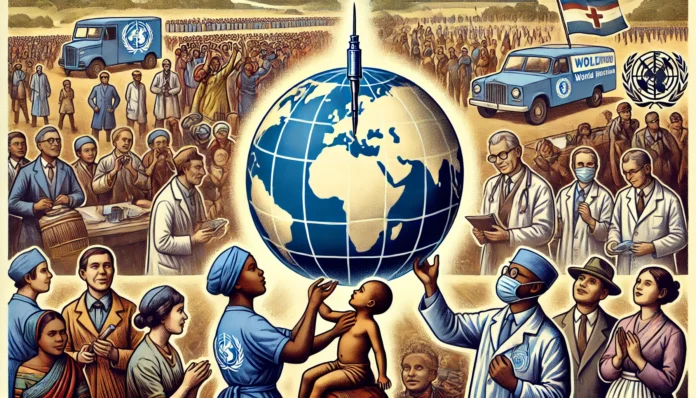On December 9, 1979, the global scientific community certified the eradication of smallpox. This monumental achievement marked the first—and to date, the only—complete eradication of a human disease from the face of the Earth. It was a triumph of human ingenuity, cooperation, and determination in the face of a deadly adversary that had claimed hundreds of millions of lives over the centuries.
The Path to Eradication
Smallpox was a ruthless killer. Characterized by high fever and a distinctive rash that often left survivors scarred, the disease had a mortality rate of up to 30% in its most virulent forms. For centuries, it loomed as a near-constant threat, indiscriminately affecting individuals across continents, from royal palaces to rural villages.
Efforts to combat smallpox began in earnest in the 18th century, with Edward Jenner’s pioneering work on vaccination. In 1796, Jenner discovered that exposure to cowpox could protect against smallpox, laying the groundwork for immunology. His innovation sparked the development of vaccination campaigns that grew in scale and sophistication over the following centuries.
By the mid-20th century, smallpox was eliminated in most industrialized nations, but it continued to devastate communities in Africa, Asia, and South America. Recognizing the global nature of the threat, the World Health Organization (WHO) launched the Intensified Smallpox Eradication Program in 1967, a comprehensive effort combining mass vaccination campaigns and meticulous surveillance.
Global Unity Against a Common Foe
The eradication campaign was a masterpiece of international collaboration. Teams of doctors, scientists, and public health workers traveled to the remotest corners of the globe, often under challenging and dangerous conditions. They used a simple yet effective strategy: vaccinate everyone in an area where outbreaks occurred and create “ring vaccinations” to halt the disease’s spread.
Countries like India, where the disease was rampant, became focal points of the campaign. Innovative tools, such as the bifurcated needle, made mass vaccination faster and more efficient. Meanwhile, grassroots efforts, often led by local health workers, ensured that the vaccine reached even the most isolated populations.
The last known natural case of smallpox was reported in Somalia in 1977. Two years of intensive surveillance followed to confirm that the virus had been completely eradicated.
A Victory With Lessons for Today
The eradication of smallpox remains a beacon of hope for public health. It demonstrated the power of science, the importance of global cooperation, and the life-saving potential of vaccines. At a time when the world faces challenges like COVID-19, the smallpox campaign serves as a reminder that collective action can overcome even the most daunting threats.
Yet, this triumph also underscores the fragility of such victories. The global eradication of polio, once thought imminent, has been delayed due to political instability and vaccine hesitancy. The smallpox story teaches us that vigilance, commitment, and equity in healthcare are essential to sustaining progress.
A Legacy of Resilience
Today, the eradication of smallpox stands as a testament to human resilience. It is not merely a chapter in the annals of medical history but a narrative that continues to inspire. It challenges us to dream bigger, work together, and believe in the possibility of a healthier, disease-free future for all.
As we reflect on this achievement, let us honor the countless individuals who contributed to this victory—from laboratory scientists to field workers—and commit ourselves to advancing the cause of global health. After all, if we could defeat smallpox, what else might we achieve with the same resolve?




